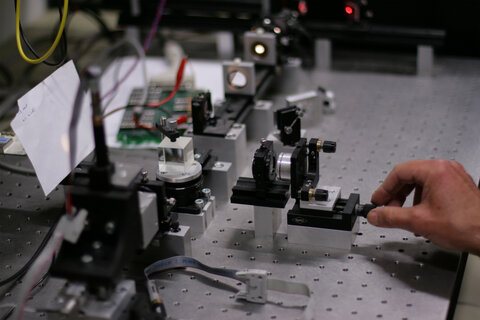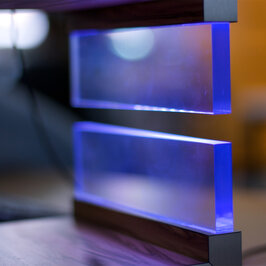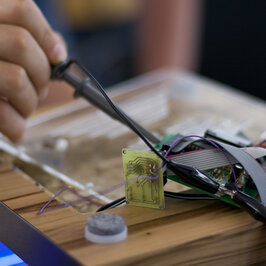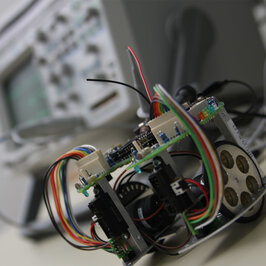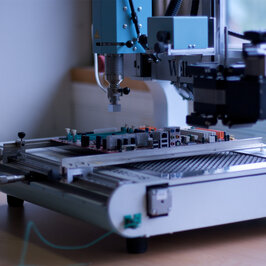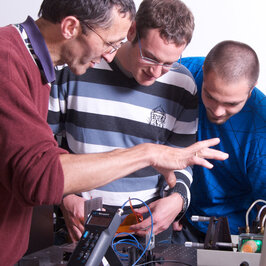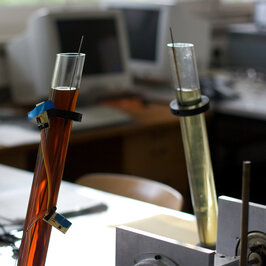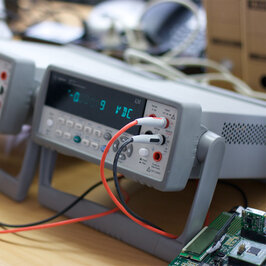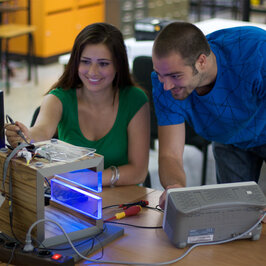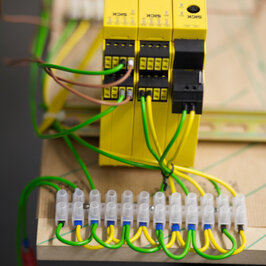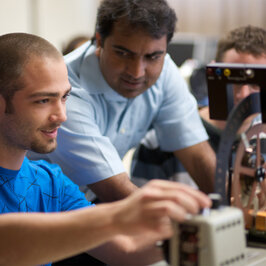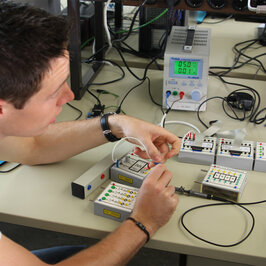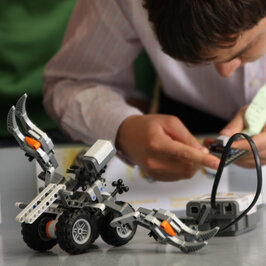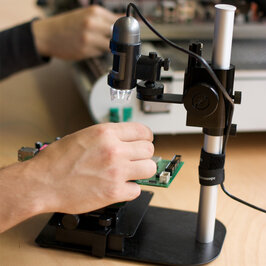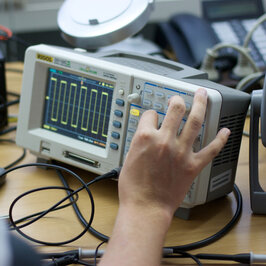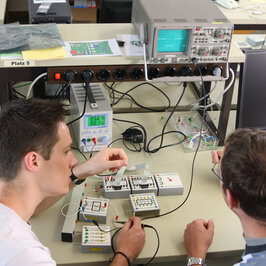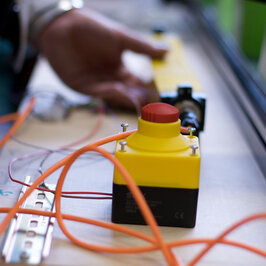Find the future!
Studying technology is fun
In seven semesters, you will receive a solid university education in Furtwangen on the "Electrical Engineering" (ELA) programme. Practical relevance is established from the first semester on.
Electrical engineering is everywhere – from the iPhone to the Porsche. The world of tomorrow determines the work of electrical engineers today. Prepare yourself for a job in the most exciting industries.
What others will be using in a few years - you can develop
The German economy is crying out for electrical engineering graduates. If you're looking for excellent career prospects, excellent pay and varied activities, this is the right course for you.
One of the special features of the course is the "lecture series", in which experts from industry, research and academia shed light on various aspects of electrical engineering. Click here for the current lecture series programme.
Programme content and structure
These are the special features of the Electrical Engineering course:
Excursions to industrial companies show electrical engineering in action and the current challenges faced by companies. Get to know many companies from the inside in the first two semesters.
A stay abroad can be easily integrated into the course. You will develop your own product in internships.
The timetable for the degree programme guarantees a radical reduction to the essentials. You will receive a lot of support during your basic studies - through tutorials, mentors and sponsors. We give you support in "learning to learn". And, very importantly, here you can study in a way that is fun.
Entry requirements
You need the entrance qualification for universities of applied sciences (Fachhochschulreife).
If you are not sure whether your school-leaving certificate is sufficient, please contact the Admissions Office at Furtwangen University.
You can contact the Admissions Office by email at: zulassungsamt(at)hs-furtwangen.de
and by telephone on: 07723 920-1234 and 07723 920-1233.
ELA specifics
GreenNose Project
During the pandemic, we developed the GreenNose project at ELA. It turned CO2 measurement into a DIY project for anyone who was interested in technology and wanted to do something good - a great example of electrical engineering in application!
During the pandemic, a major issue was that staying indoors increases the risk of infection. But when exactly did rooms need to be ventilated? We from the "Electrical Engineering in Applications" (ELA) course have developed a module with a microcontroller (ESP32) at its core. This evaluates the data from a CO2 sensor and displays it. The module helps to ventilate in good time in order to reduce CO2 pollution and thus make it more difficult for viruses to spread.
The CO2 measurement module has been specially developed for schoolchildren, for example as a ready-to-use module that is simply connected to the power bank supplied. The CO2 concentration is then permanently monitored and the status is shown via LEDs or a display. If this sounds too simple for you, we also offer the device as a kit. If the indicator with LEDs and display is not enough for you, you can even connect to a mobile device, receive additional information or track the progress of the CO2 concentration.
What's covered
Semester fees
Special features
Students can take advantage of the cooperative trainee programme which HFU offers together with strong partners from industry from the first semester onwards. However, it is also possible to join the programme at a later stage of your studies. We offer various options for this. The cooperative trainee program is not tied to a specific subject area and can, in principle, be combined with all HFU Bachelor's degree programmes.
To date, the programme has supported students with a total of several million euros. In more than 90% of the trainee contracts concluded to date, the trainees have been taken on directly by the company. Good prospects for both sides!
Your career prospects
These are some of the sectors in which our graduates work:
- telecommunications
- automotive industry
- IT
- medical technology
- renewable energies/environmental technology
- avionics
- rail Systems
- mechanical/plant engineering
- semiconductor technology
- sensor and measurement technology
Electrical engineers lead in terms of average starting salaries.
Dates and events
Further dates and eventsUnfortunately, there are currently no events planned that we can display here. We have compiled an overview of all planned events in the event calendar.
Your key contacts
Your future is important to us. Contact us for advice.
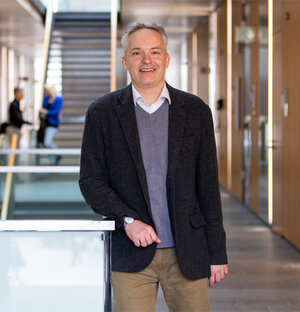
Electrical Engineering (BSc) (ELA)
Information Communication Systems Bachelor (BSc) (ICS) discontinued
Mechatronic Systems (MSc) (MES)
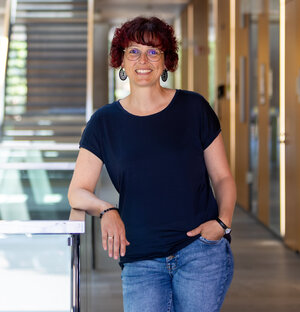
Faculty II: Engineering & Technology
Faculty III: Health, Medical & Life Sciences
